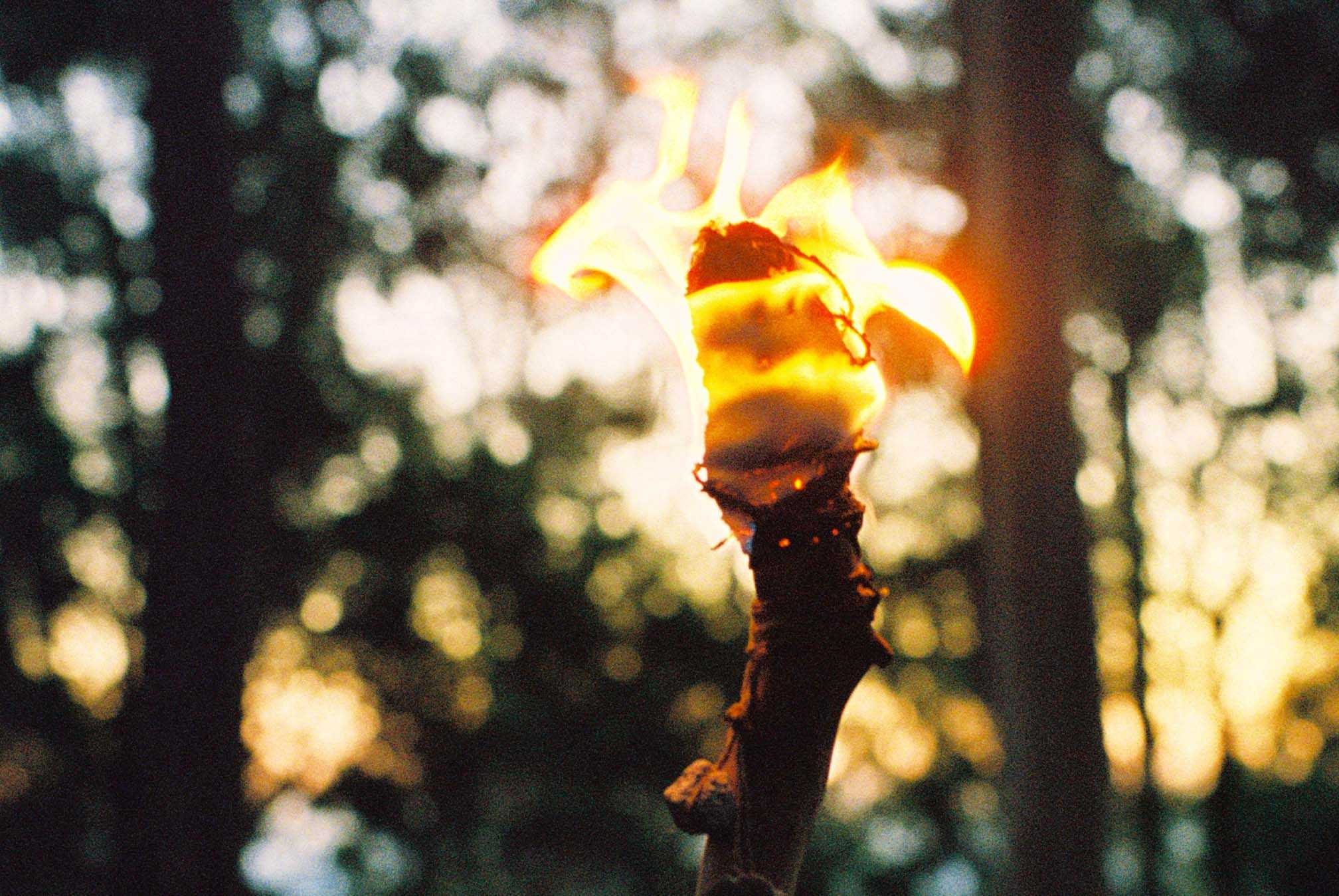 SCENE REPORTS
SCENE REPORTS
FAMILI’s Bloodfire EP Launch: A Fire of Resistance, Restoration, and Reclamation
Writer Fei Chen reviews a gathering of Pasifika, Blak, queer, and trans voices forging new worlds through sound, memory, and resistance.
Come sit by the fire.
This is the invitation FAMILI extends - a collective born at the intersection of Pasifika, Blak, queer, and trans experience, establishing an intercultural musical collaboration connecting past, present, and future into a space that refuses easy categorisation.
At their ‘Bloodfire EP’ launch, this fire ignited a force: a space where ancestral traditions met futuristic sounds. Stories of resistance, identity, and healing rippled through electronic, hip-hop, and R&B beats, entwined with traditional Oceanic instrumentation.
More than music, it was an act of memory, reclamation, and survival - carried through collective voices shaped by years of shared history. Forging new worlds with bold intentions, FAMILI drew listeners into their sonic lineage.
I’ve been a southside girl for just under a year now.
In my head, Jonine Standish’s voice drifts in - HTRK (pronounced haterock), the Naarm-based duo whose sparse, spectral pop has long been a touchstone of the city’s underground - looping like a subtitle:
“I’m a southside girl, I grew up by the seaside…”
These days, I rarely make the trek to the north. The ‘FAMILI EP’ launch on Thursday, July 17 at Northcote Social Club - the second evening of their back-to-back shows - was one of those rare nights worth crossing the river.
Stepping off the 86 tram on High Street, I ran into friends I hadn’t seen in ages. One was pregnant - a joyful surprise that set a warm, hopeful tone for the night. We shared quick laughs and updates before I ducked into the tobacconist for a pack of Mac Menthols.
As I walked towards the venue, I lit one and caught faint harmonies drifting from the green room, delicate currents tracing the night air. Outside, I spotted the resident hotties from YIRRAMBOI and gave them a hug - a cheeky reminder that good energy always surrounds nights like this. With that, I stepped inside. Each footfall carried me deeper into the resonance FAMILI had conjured, where music and community would converge.
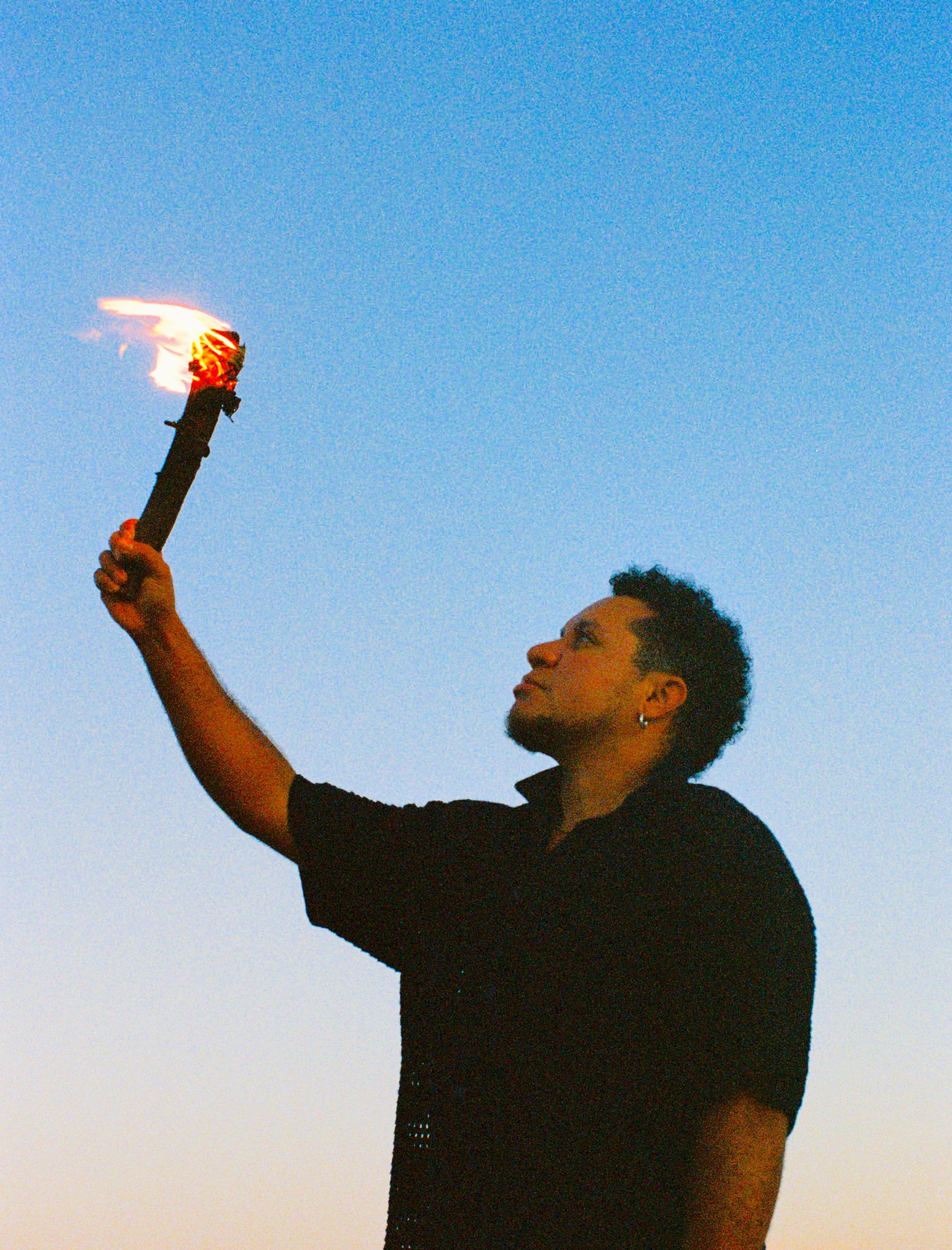
That resonance has been building for years. FAMILI began in 2017, but the spark was struck earlier in 2014, when Ripley Kavara, also known as Lakatoi, returned to Naarm after visiting Turtle Island (North America), where vibrant QTIBIPOC spaces left a lasting imprint. Coming home, the absence of anything like that here in Australia was palpable. That gap became the ember that would kindle FAMILI.
Ripley is an experimental producer, musician, and curator creating immersive spaces where artists convey narratives through sound, embodiment, and spiritual connection. As one half of the rap duo Kandere and co-founder of the Alterity Collective, he has supported artists such as Moor Mother, GAIKA, Leonce, Asmara, Elysia Crampton, and Yves Tumour, while fostering cross-cultural QPOC events. Through FAMILI, he unites voices from Pasifika, Aboriginal, and Torres Strait Islander communities, asking, “What is the sound for our region?”
Notably, he organised the groundbreaking Lapdance 4 Trans Rights, using ‘pleasure activism’ to fundraise for critical community issues. Rooted in Papua New Guinean and Scottish heritage on unceded Wurundjeri Country, Ripley’s vision embraces home, diaspora, futures, disruption, belonging, and spiritual homecoming.
By 2018, Ripley had set FAMILI in motion: a collective drawing on Pasifika and Blak ancestry, musical influence, and shared histories to create a space where stories, sounds, and futures intersect. From the start, their practice has been about more than performance. FAMILI’s work explores climate change, migration, gender, and sexual identity, as well as the ongoing negotiations of cultural expression in diaspora - lived realities where historical knowledge and contemporary experience meld together. FAMILI makes these realities audible.
Their first blaze into public consciousness came in 2020 at Abbotsford Convent’s Magdalen Laundry during Midsumma. “Goosebumps and joy,” as Liminal described it. The night braided music, poetry, and ceremony - Ripley’s curatorial vision guiding Waru (Bella), Porobibi, Kalyani Mumtaz, Lay the Mystic, Kalala, Lonelyspeck (Sione), Iki Finau, Meleika Gesa-Fatafehi and Daisy Catterall, along with collaborators with Paul Gorrie (DJ PGZ) on drums and Geryon (Seth) on keys. Mossy Jade Johnson’s visuals transformed the space into a luminous tropical stage. Bella performed a Karakia and Te Reo Māori acknowledgement, weaving ceremony through performance. Oceanic musicality and diasporic stories rose into the rafters. It was a landmark moment, FAMILI stepping into the light.
Although the path wasn’t without interruption, in 2022, We Take Back Our Mother Tongues - a multidisciplinary project slated for Arts House was cancelled. The decision wasn’t just about navigating Naarm’s stop–start lockdowns, but the exhaustion that it left behind. Melbourne endured six lockdowns between 2020 and 2021, 245 days in total - the longest in the world. By 2022, restrictions were easing, but the psychological fatigue lingered. Burnout, fear, and caution shaped the landscape. What had once been instinctive - gathering in sound and movement - suddenly carried risk.
The ambition of Mother Tongues reflected the hunger to recover that space, but also revealed how fragile it had become. Across the music scene, people spoke of needing to rebuild confidence, to relearn what it meant to share breath and body in a room together. For FAMILI, the cancellation became a lesson in care. Even when doors closed, their practice continued: space was maintained, connections nurtured, community upheld. The experience sharpened an awareness that live music is never just a performance, but a collective healing - made even more vital and precarious in the wake of COVID’s rupture.
As Ripley wrote in their artist statement for Arts House, FAMILI was always a calling: to explore queer Pasifika sounds, to express identity, language, and gender through contemporary forms. This practice reflects diasporic experience in so-called Australia, where Black and Brown settlers navigate in solidarity with First Nations communities, recognising how colonisation has shaped us in different but interconnected ways.
I feel this deeply. As a first-generation immigrant from Malaysia, I’ve lived the splintered ties to culture that come with distance from familial lands. Music, art, and performance have been where I’ve pieced together an understanding of self, queerness, and my place as a trans woman of colour. These spaces have held me. Learning from First Nations communities here has been transformative, revealing shared yet distinct colonial legacies and how they ripple differently through our bodies and lineages.
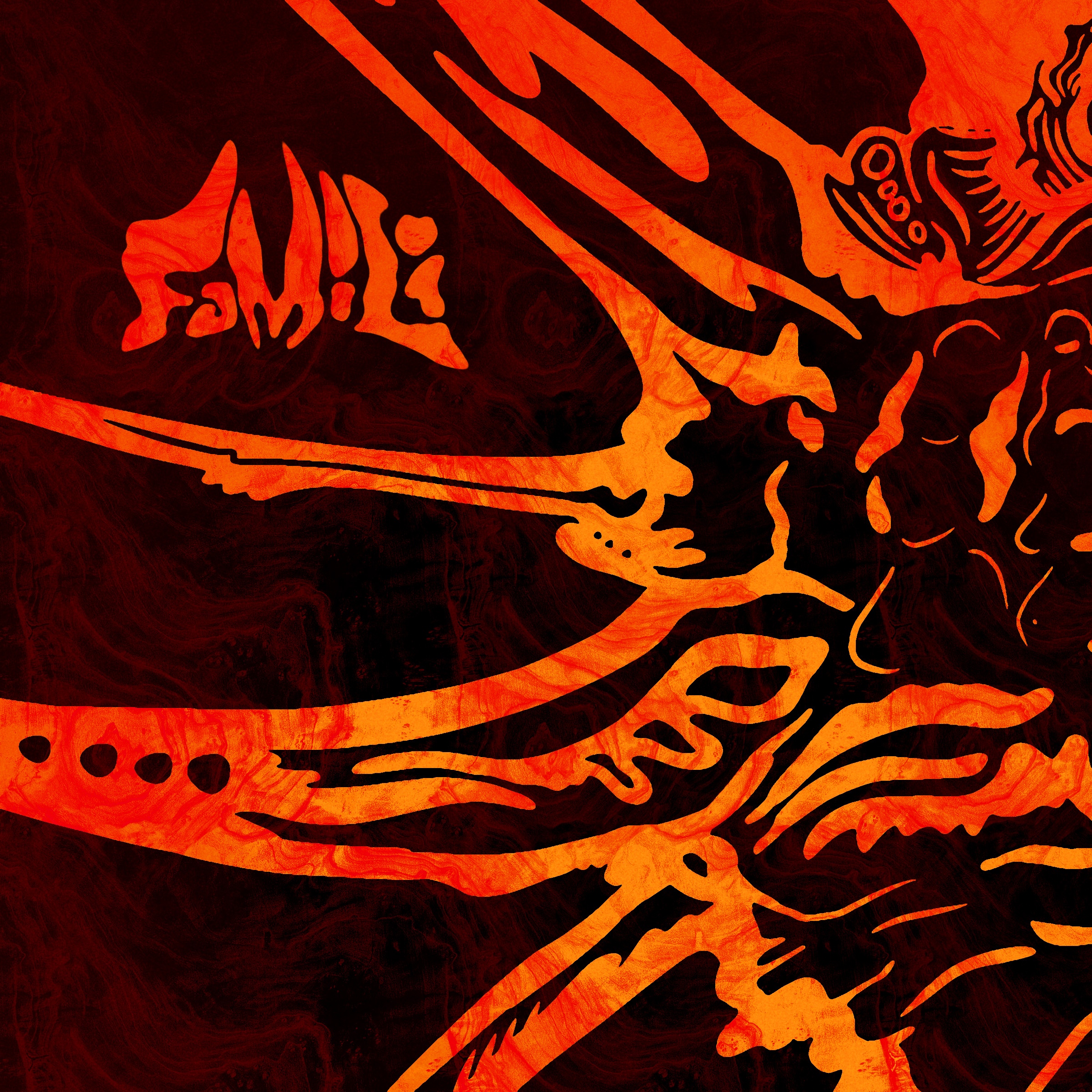
This is why FAMILI’s work resonates. It is less a singular project than a continuing practice: listening, remembering, and reshaping. A collective consciousness that holds complexity, multiplicity, and deeply felt ways of being. Their sound recontextualises Oceanic instruments - conch shells, log drums, bamboo shakers, flutes - inside contemporary rap, R&B, and electronic forms. Song structures and harmonies familiar to Pasifika music bring a spiritual dimension, as evidenced by the practice of singing together and singing to each other.
Even in the pause, the EP’s elemental structure offered continuity, each track channeling a force of nature. Earth grounded the set in homecoming, tethered to Papua New Guinea and West Papua and the ongoing struggles for sovereignty and survival. Fire spoke to transformation — the blaze of empowerment and speaking back, turning pain into strength and rebirth. Air moved through collective breath and layered voices, carrying winds of change that challenged not only white supremacy but also the weight of cultural traditions that refuse to recognise queer and trans identities. Water coursed as both warning and lament — rising seas threatening Pacific homelands, grief rising in tandem, yet refusing to be silenced.
By the time of Bloodfire’s launch, those years of careful stewardship had ripened. The fire, long tended underground, was ready to flare outward.
For over seven years, FAMILI has been a home and creative crucible for artists navigating diaspora, queerness, and cultural endurance in so-called Australia. This launch wasn’t just a release - it was a gathering of voices quietly shaping a legacy, so future voices can rise and continue the story.
The evening began with the recording of Banj Ba Wolert, played in the absence of Stacie Piper. Stacie, a proud Wurundjeri, Dja Dja Wurrung, and Ngurai Illum-Wurrung woman, Djirri Djirri dancer, and Chairperson of the Victorian NAIDOC Committee, carried ancestral weight even through the recording - rain, water, protector of the waterways, strong women - a reminder of FAMILI’s seven-year journey and the centrality of First Peoples’ storytelling.
Following the recording, Bella stepped onto the stage to offer an Acknowledgement of Country in te reo Māori. A movement artist and singer-songwriter of Ngāti Tukorehe, Taranaki Tūturu (Māori) and Celtic descent, they are one of FAMILI’s anchoring voices - a performer whose movement and song often thread the collective together. Speaking in their own language to honour Wurundjeri sovereignty, they grounded the night in respect, carrying the weight of generational ties and cultural continuance..
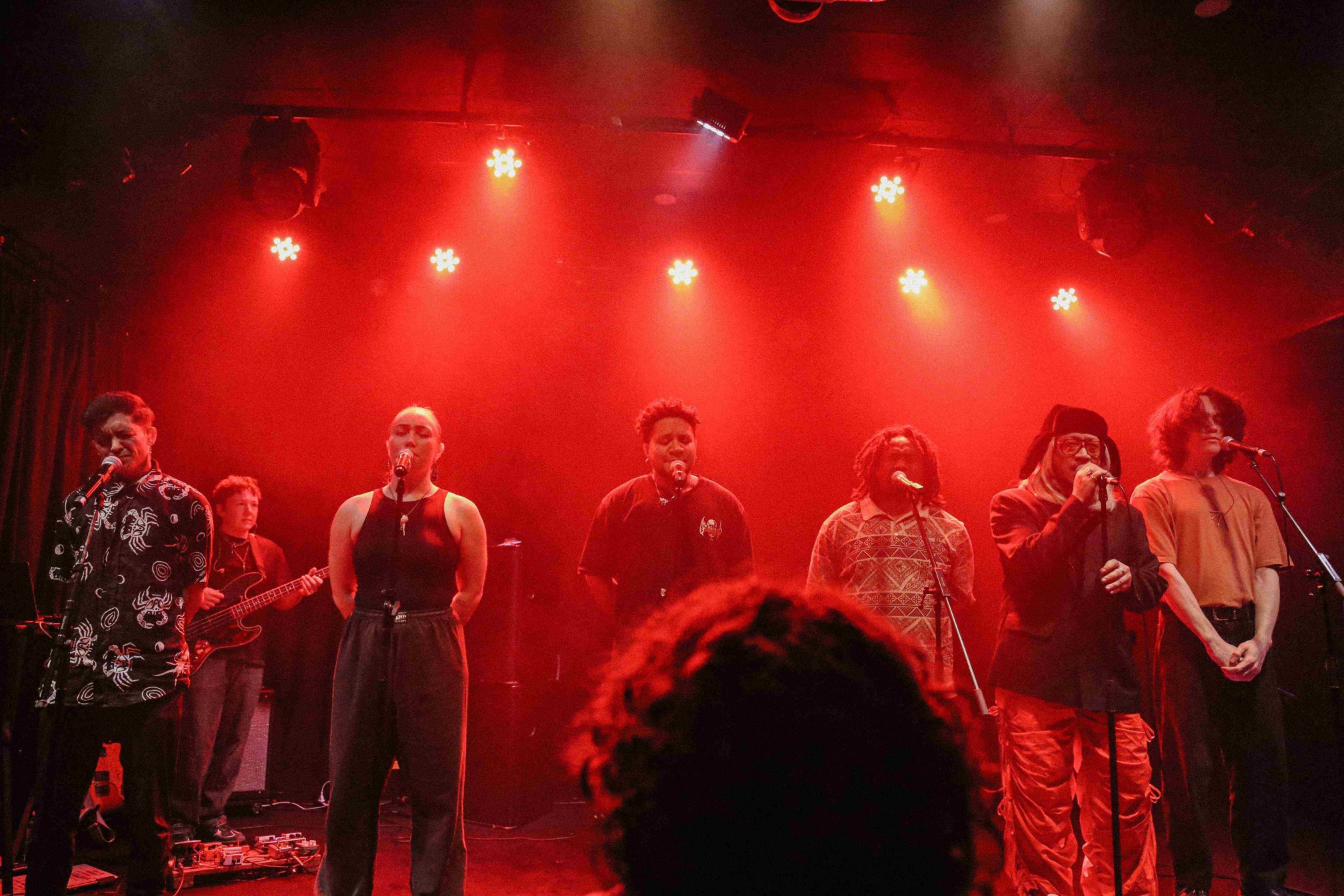
The set opened with Mother Tongues, an invocation and rallying cry that gathered force with each repetition of the phrase, “We take back our mother tongues.” A steady crescendo carried the voices of Bella, Iki, Dani Sib, Ripley, Porobibi, and Sione, building layer upon layer like a wave rising in strength. Seth’s guitar punctuated the choir’s harmonies, grounding the piece with a sharp, cutting edge that pushed the urgency forward. Each cycle of the refrain swelled larger than the last, culminating in a surge of defiance and liberation that filled the room.
That wave carried directly into Mana, where the energy thickened and grew grittier. Ripley’s opening verse -
“Pull our hair back, Run up to the side, yeah we,
Pull our hair back, Dip it down low, yeah we,
Pull our hair back, Came up through the fire, yeah we,
Pull our hair back, pull our hair back”
- landed like a strike, forceful and unflinching, setting the track’s stance: here to fight, here to claim. The bass hits heavy, each chorus a communal rallying cry, pulsing through the crowd as if to say: this energy belongs to all of us.

For this performance, Bella stepped in for Daisy Catterall’s verses, their voice carrying a stark vulnerability and depth that made the words feel newly alive. Over the choir’s call-and-response, they sang:
“Holding back my river (my river) / Holding down my mountain (my mountain) / It’s long just like my awa (my awa) / Wide just like my maunga.”
Haunting yet sincere, their delivery wove soft sharpness, staggering tenacity with affection. It was a voice that didn’t just carry the verse but expanded it, opening the room to the weight of memory and the determination of the spirit.
From there, Sione’s verse lifted the track into mythic terrain:
“Where volcanoes make islands / Where the gods raised the sky / And Mama and Langi divided / All that strength is all in us / Mana’s staying strong in us / Ancestors watching over us, over us yeah”
His lyrics drew a line between cosmology and ancestry, anchoring the performance in mysticism and fervour. The interplay of grit, connection, and ceremony made the room itself feel like part of the ancestral line being invoked.
After Mana, Ripley introduced each member of the ensemble. Lead and backing vocals were provided by Bella, Iki, Dani Sib, Porobibi, and Sione. Guitar duties were shared between Seth, Sione, and Dani Sib, while Ripley and Iki alternated on drums. Seth and Sione held down bass, with production steered by Seth, Sione, and Guy Louis Faletolu, who also served as sound engineer and production designer. The introductions made visible the collective effort behind the music—the interwoven relationships that carried the night’s force.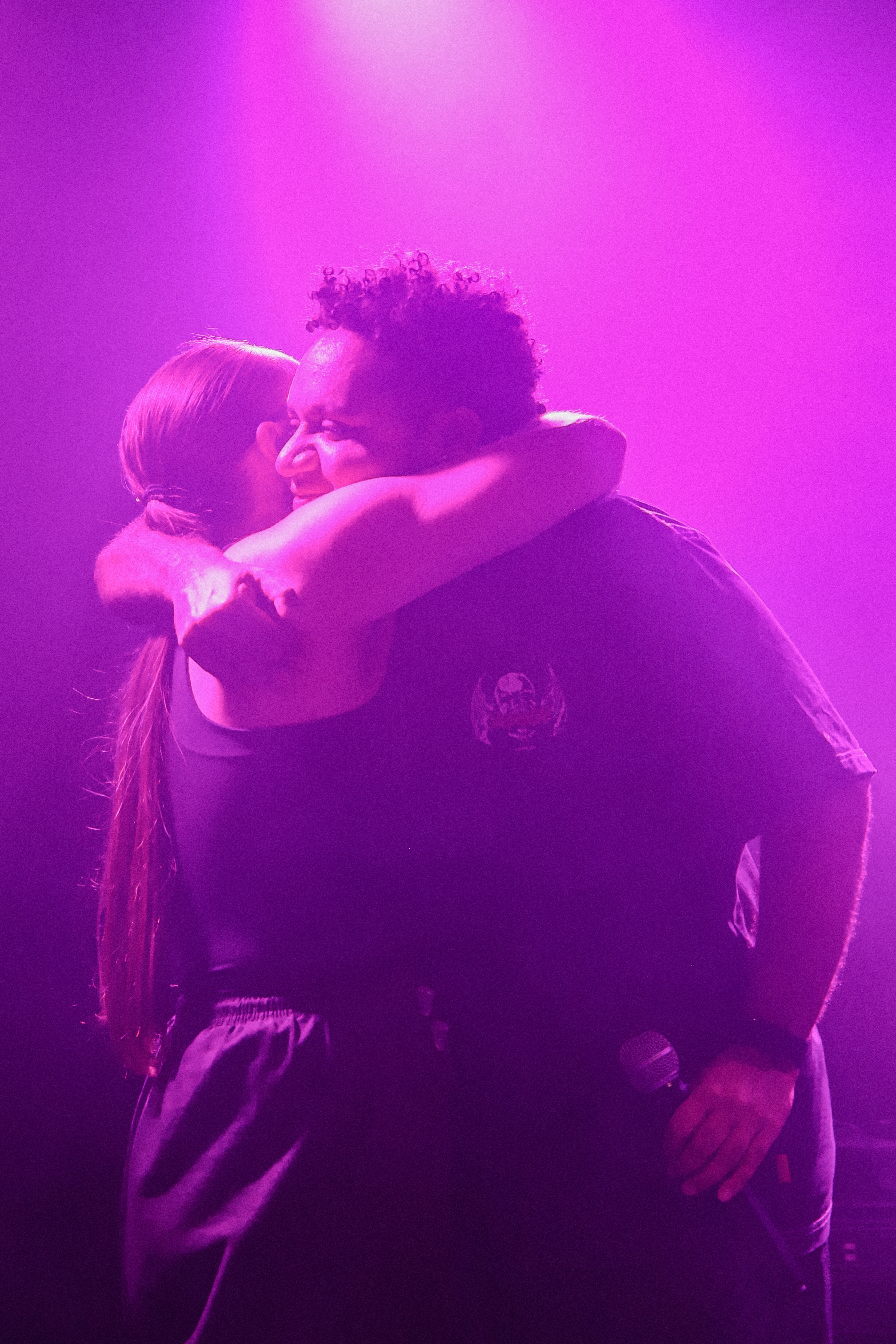
The pace softened into an untitled, ballad-like space of gentleness and intimacy. Ripley’s opening lines stalled twice, interrupted not by hesitation but by the sheer energy of the audience holding space for each word. On the third take, the song fully landed, and with it came a palpable emotional release.
This track unfurled as a shared centre between Ripley and Bella, their voices interlaced like dialogue - reflecting and grounding each other, sparking an earnest and heartfelt conversation between them. Over sparse guitar and percussion, their duet became a meditation on the body as a vessel of memory, resistance, and emancipation - asserting ownership over their flesh, their story, and their bloodline.
The motif of bones traces their family line, inscribed within them, carrying unspoken knowledge and histories. As the song grew, instruments gradually layered, building up in both confrontation and embrace, an affirmation of fortitude and presence.
For me, as a queer and trans woman, these words resonated as a statement of self-possession - a refusal to bow to colonial or societal norms, dictating how bodies should move through this world. Ripley’s vulnerability as a transmasc person became a shared strength and solace, mirrored and amplified by the crowd’s energy.
The ballad’s quiet intensity spilled into Our Blood, opening with Iki's solo, singing acapella. A queer singer and performer of Tongan descent, his honeyed, soulful voice immediately drew the room in - every ear leaning toward his opening refrain: “My blood is a river / that carries us all / my blood are the people / that lifted me all the way up.”
The space held its breath until the choir joined, harmonising their voices with his. The layering of these voices gave the track a sense of expanse, of support and shared purpose, as if the song itself were breathing through everyone in attendance. Gentle instrumentation arrived, underscoring the vocals. Iki’s delivery carried both gravity and grace.
Porobibi then stepped in - a Papuan poet, rapper, and interdisciplinary artist with a cadence at once mischievous, grounded, and prophetic. His verse, partially in Malay - “Ko kuat bagai tentara / seribu satu suara / berjuang tong masih ada / seribu satu saudara” - brought ancestral echoes, diasporic memory, and generational wisdom into the present. He closed with a supportive guidance: “You have the power of 1000s ancestors within you… remember to be you, my blood.”
As someone of Malaysian descent, hearing Malay live was rare in this context and deeply resonant, a tether to home and a bridge across oceans. Iki’s emphatic vocals and Porobibi’s encouraging storytelling transformed the refrain into more than a chorus - it became a living testament to kinship, weathering through turbulent times in unity.
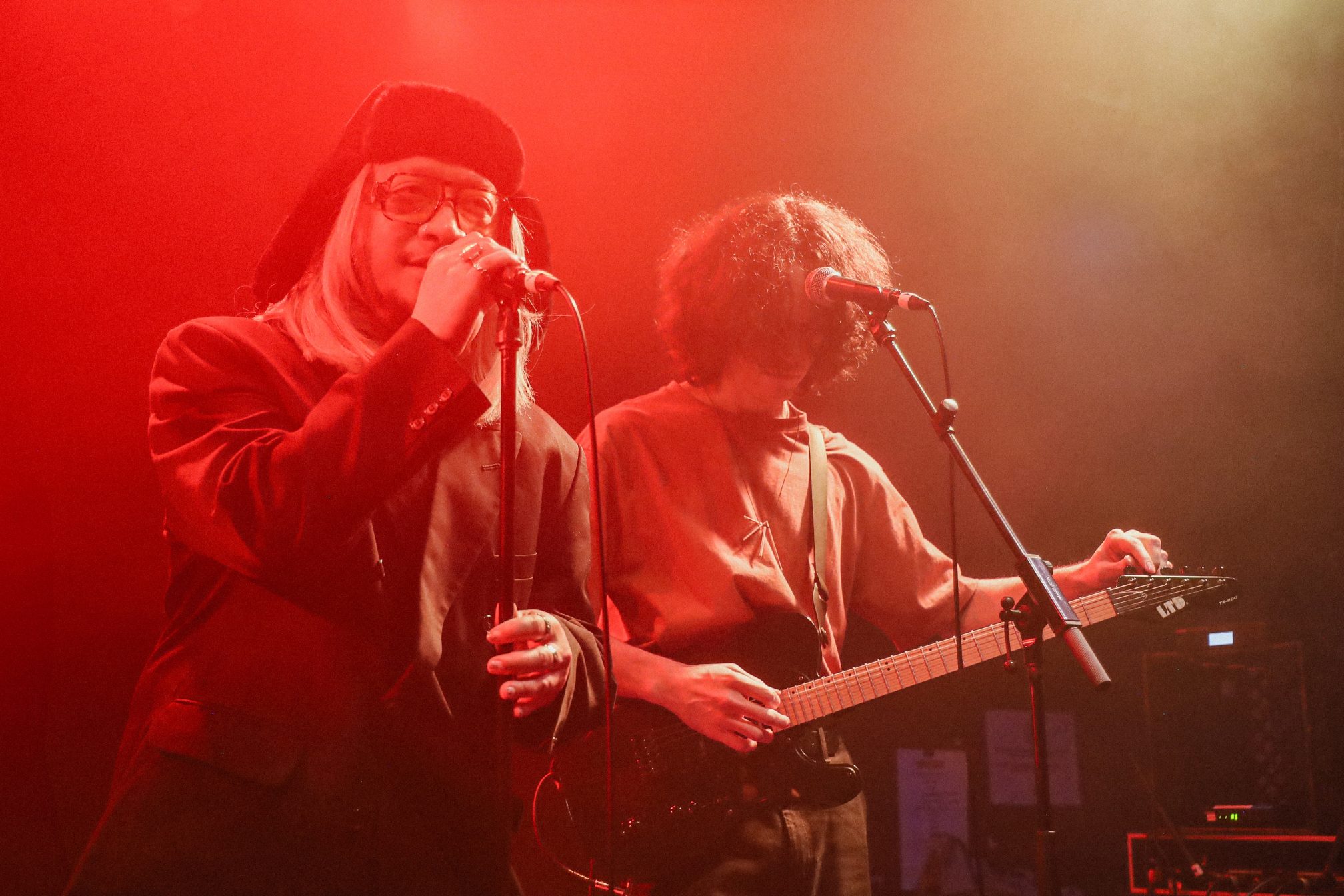
From that communal reverberation, the mood evolved into a glowing duet between Iki and Sione. Their voices intertwined like sunlight rippling across a lagoon, soft yet buoyant, carrying a playful, danceable warmth. The audience clapped, cheered, and moved with them, drawn into the song’s bright and celebratory current. Seth and Sione’s guitars threaded through the space, while Porobibi danced in the background, accentuating the rhythm with fluid motion. For this moment, Iki and Sione held the spotlight, as Bella and Ripley stepped offstage to dance with the audience, allowing the duo’s voices to shape a luminous, island-lit atmosphere. The performance radiated joy and ease, like coconut palms swaying in a gentle breeze, inviting everyone into a shared space of light, laughter, and communal delight.
As the set carried on, a different energy emerged - sultry, playful, and unapologetically sensual. Bella stepped forward with a commanding presence, immediately setting the tone. Ripley followed, their verses delivered with swaggering intensity and precision, each movement and gesture striking with confident flair.
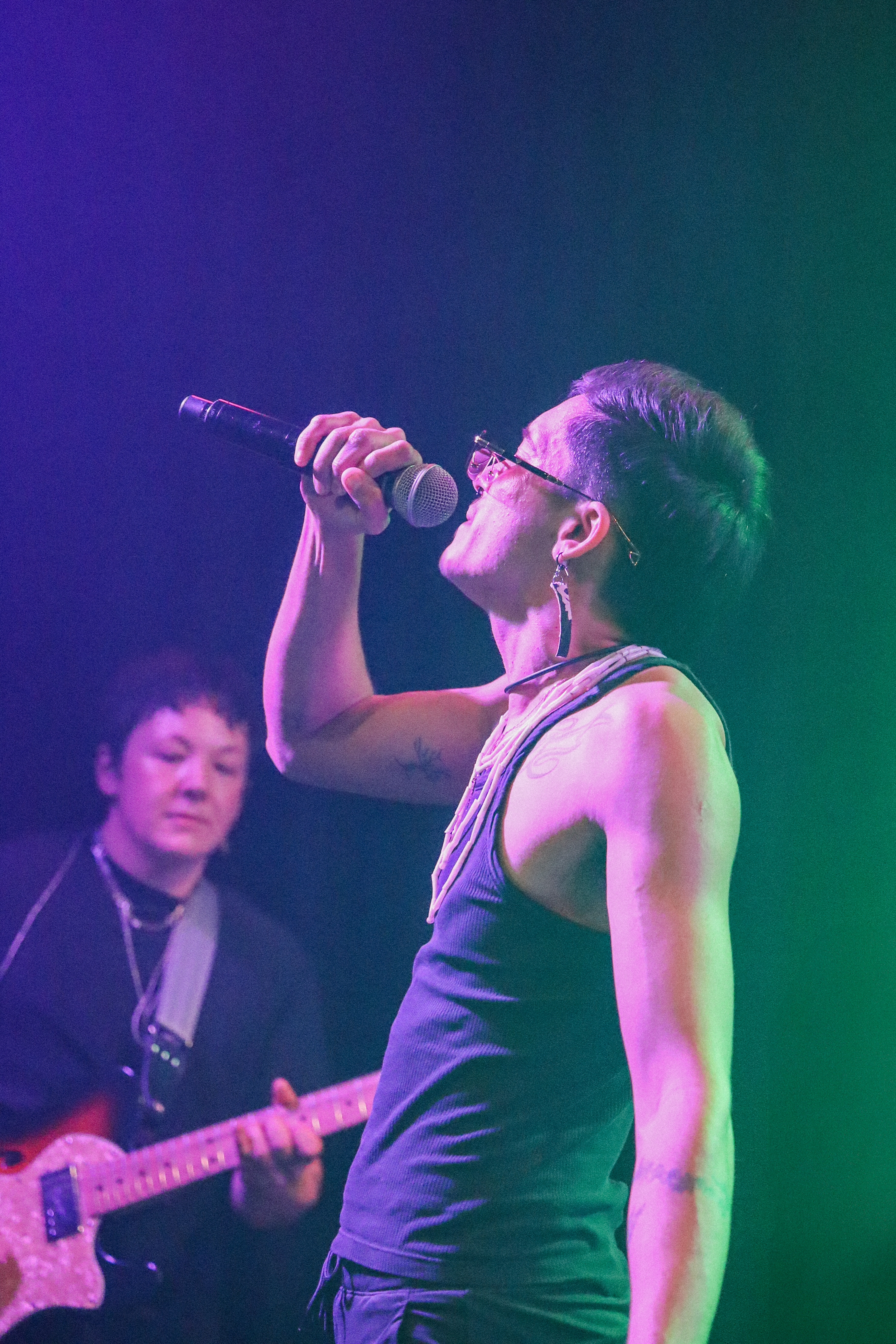
Dani Sib then took the stage, their presence both grounded and electric. A Baad and Yawuru artist from Broome and Lombadina, Dani moves like a thunderstorm - every phrase and gesture carrying weight, ferocity, and unflinching honesty that resonated through the room. Their vocals, rich and resonant, layered sensuality with a sage ferocity, grounding the track in a space that was at once intimate and exhilarating.
Hearing transmasc and nonbinary voices claim space so boldly electrified the crowd. The chemistry between performers was palpable; their movements and calls bounced across the room like sparks. Bodies responded instinctively, celebrating presence, desire, and visibility. This was a moment where music, identity, and shared energy converged - a reminder that expression, in all its forms, can be both sensual and radical.
After a run of tracks, the set swerved into Bloodbath. Heavy, bass-driven, punctuated with drum solos from Iki (trading fire with Ripley), it detonated the crowd. The floor shook with movement, people shouting, jumping, caught in the catharsis of its fury. The response was so explosive that chants later demanded it back as an encore - proof of how deeply it landed.
With the stage emptied, silence fell, broken only by the recording of Freedom Fighters - performed and written by Porobibi, produced by Lonelyspeck and Lakatoi. Its verses were heavy with grief and defiance:“One by one of us slaughtered in front of our eyes / They don’t realise thousands of us will rise.”
Played over the speakers, it felt ghostly, a collective mourning ritual, grounding the room in remembrance.
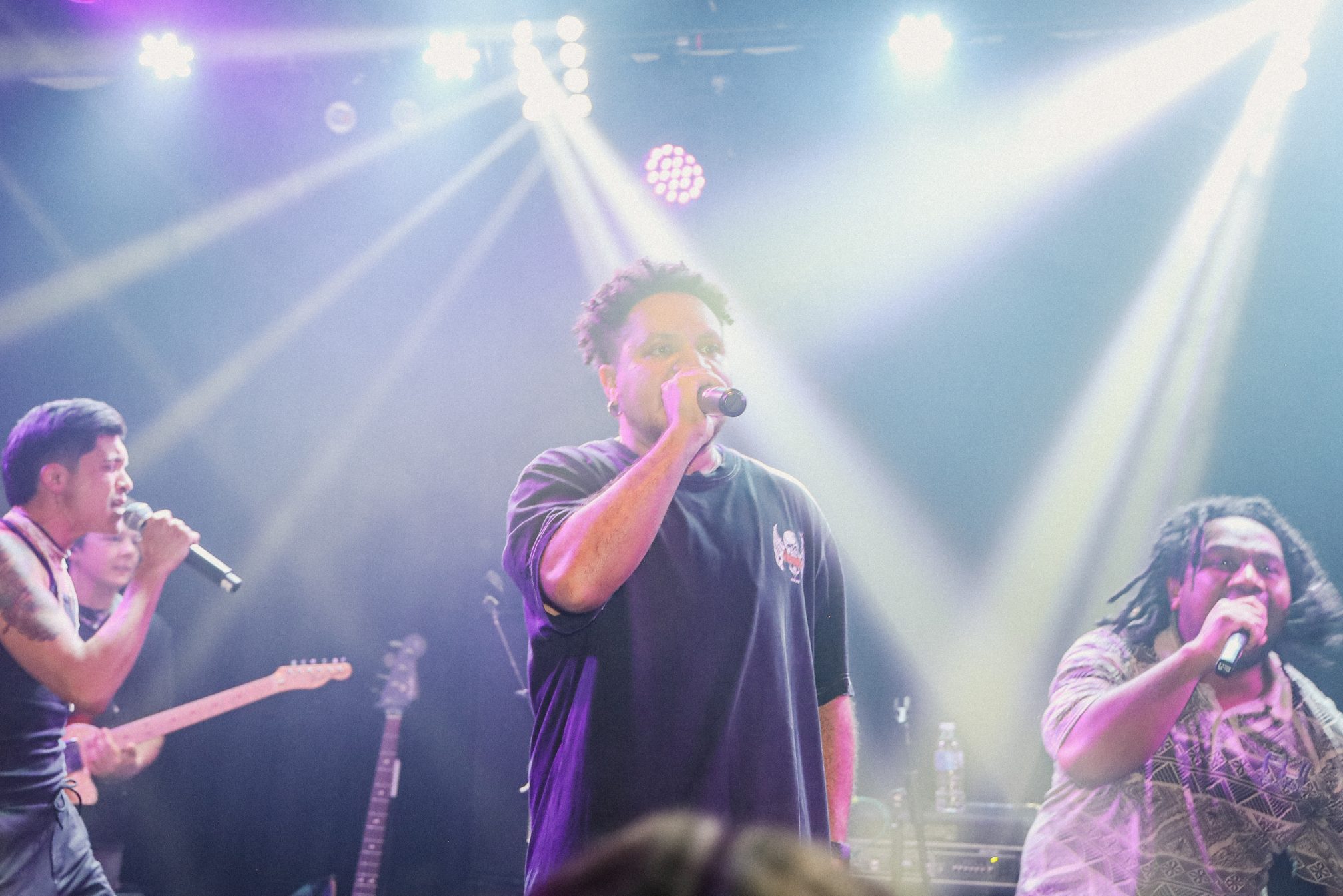
The members then stormed back on for Firekeeper, the night’s blaze and the first single from the upcoming EP. If Bloodbath was fury, Firekeeper was persistence - an anthem of survival that refuses to be extinguished. Its title carried weight: to keep fire is to protect, to nurture, and to resist erasure. The performance roared with urgency, a mix of defiance and celebration, a promise that the ancestral spark would burn into the future, continuing to build a legacy for generations to come. The performance pulsed like a prophecy - a glimpse of what Famili is carrying forward, and an unmistakable signal that this is only the beginning. The crowd’s response confirmed it: Firekeeper wasn’t just a single; it was a rallying flame.
"Like magma / You’ll never contain us / No you can’t kill our spirit / Our blood flows through these rivers / Always have, always will"
Dani Sib’s powerful line pierced the air with a visceral force, embodying both unified defiance and a commitment to legacy. The energy in the venue surged, wrapping the crowd in a wave of passion and mana that left everyone electrified.
As the night reached its climax, Famili took centre stage - a poignant anthem filled with deep sentimentality, unwavering perseverance, and the profound concept of chosen family. Its refrain resonated like an uplifting mantra, each line imbued with the weight of care, solidarity, and the sacred bond of survival. The lyrics served as an emblem, showing that despite the trauma and struggles faced, their connection remained unbreakable. When the final chorus swelled, the evening transitioned from a performance to a heartfelt embrace, drawing the audience into a warm circle of kinship that lingered long after the last note faded.
After the main set concluded with Firekeeper and the tender closure of Famili, chants of encore rose immediately. The crowd demanded to hear Bloodbath - the track that had earlier ignited the room with its industrial basslines, charged verses, and drum duels between Iki and Ripley.
Bloodbath erupted once more, its punchy bass lines pulsating through the sound systems and drum solos driving the audience into frenzy. Poro’s opening lines -
“Knock knock who’s there banger / Rise from the ashes dead” -
hit like a powerful ceremonial declaration, setting the stage for Ripley’s visceral verses that followed:
“I come from the mangroves / Inna Ancient time / King vampire, Arise.”
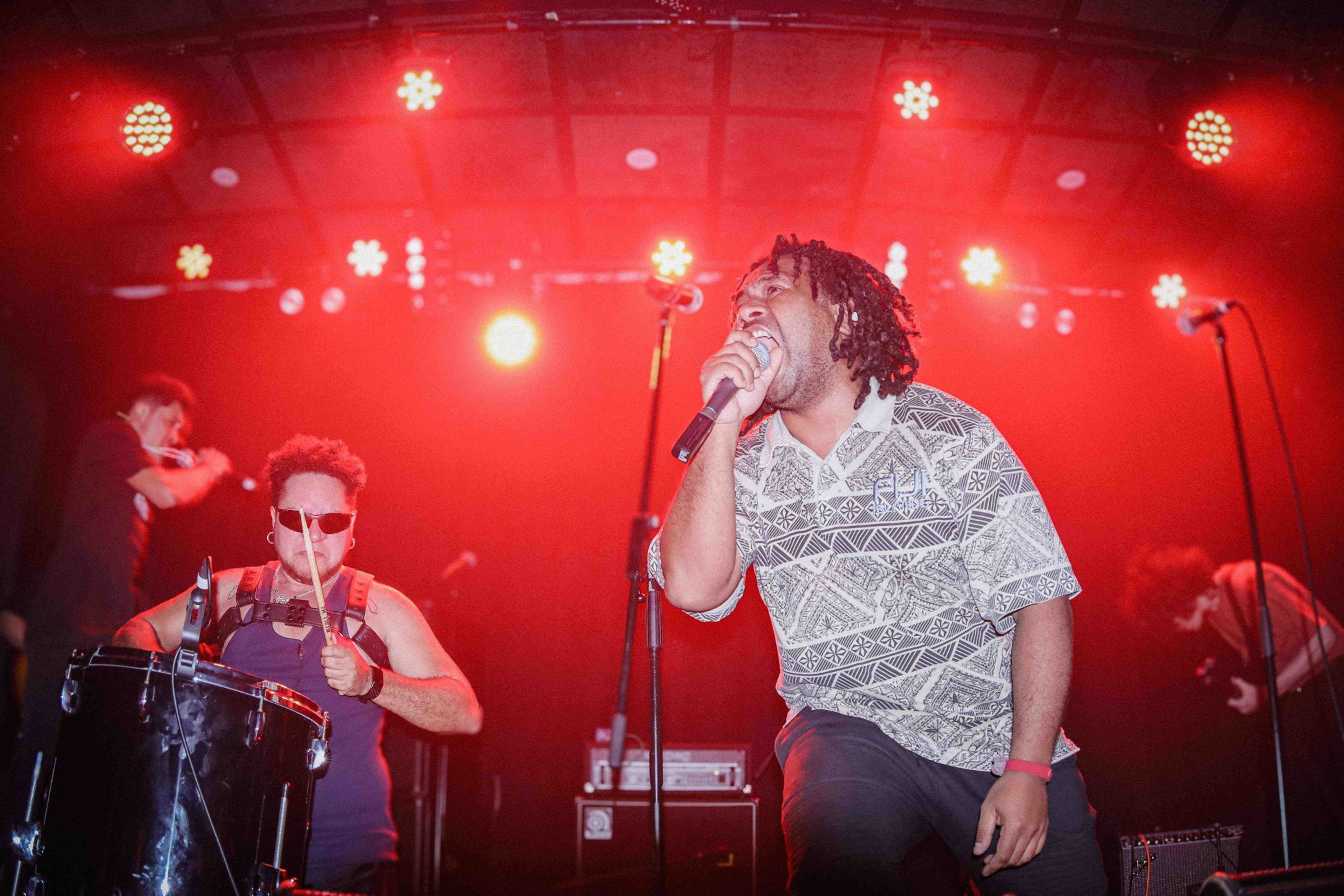
Dani Sib’s fiery delivery propelled the energy even further, emphasising ancestral retribution and righteous indignation. The collective force of voices, instruments, and the crowd’s movement made the encore feel like both a cathartic release and a fervent declaration of resilience.
The raw intensity of the encore contrasted beautifully with the preceding tenderness, aptly reaffirming the duality of Famili’s performance: an artful blend where care and intimacy coexist seamlessly with unbridled, communal strength. Even as the final notes of Bloodbath faded, the audience’s shouts lingered, a testament to the performance’s imprint. It was a moment that celebrated presence, history, and the enduring fire of collective memory - a reminder that the set was more than a series of songs; it was a living, breathing commemoration of art, identity, and solidarity.
The night gradually wound down, conversations blossoming in clusters around the room. Friends and collaborators from years past shared reflections, hugs, and laughter. The warmth that had been carefully curated on stage now radiated into every corner of the space, carried through human connection, not just music. Drinks were consumed, shoulders brushed, confessions and jokes whispered in confidence. The music had created the thread, and we all immersed ourselves in it.
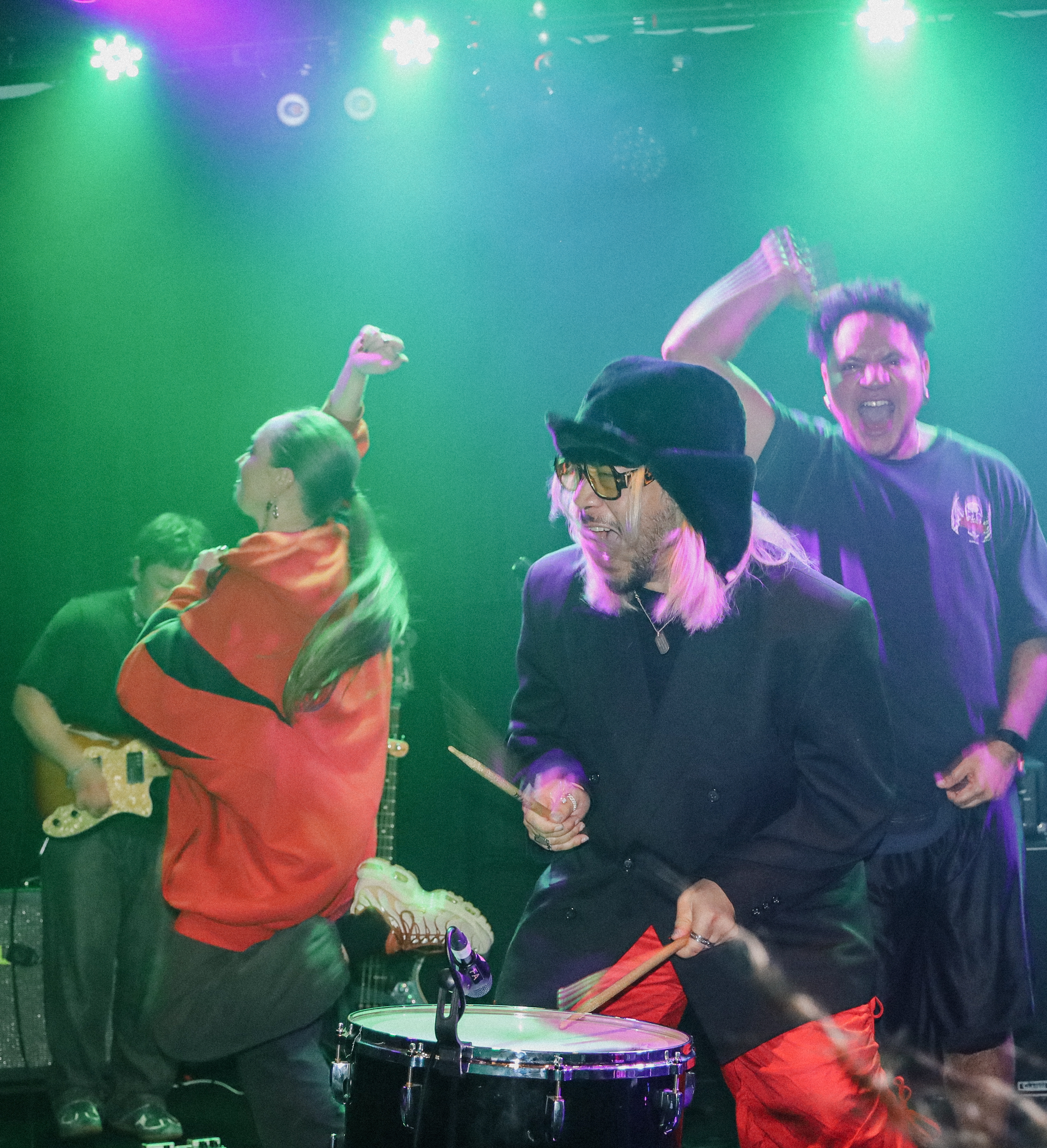
As I stepped back out into the chilly Northcote air, the night felt heavy and light. Heavier because it reminded me of all that is carried within our bodies - our histories and our communities. Lighter because witnessing FAMILI’s work - their courage, their gentleness, their refusal to compromise identity or truth - was deeply restorative. Walking along High Street, I could still hear the echo of harmonies in my chest, feel the vibration of beats in my spine, and sense the warmth of community in my heart.
FAMILI’s Bloodfire EP launch wasn’t just a release or a performance; it was a living, breathing act of resistance, restoration, and reclamation. It was a transgressive, loving, and radical gathering. And as I made my way home, I carried that fire with me - in memories, in heartbeats, and in the knowledge that such environments, such music, such people, are necessary, urgent, and fiercely alive.
-
Fei Chen is a freelance writer based in Naarm/Melbourne.


